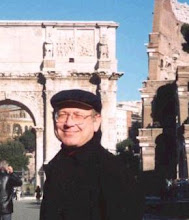Why do free market economies always outperform command (i.e. socialist) economies? The answer is a simple one; free market economies have the advantage of everyday magic. While small amounts of wealth can be produced from human labor and ingenuity alone, the high standard of living in modern economies is the product of a magic where wealth is created seemingly from nothing at all.
Only in a market can a hungry man with a few dollars in his pocket satiate his hunger with a professionally prepared meal. The market allows a non-metallurgist to use metal tools and a non-chemist to have access to complex plastics. Markets provide us with the experience of products from around the world and allow us to have tools, homes, and vehicles that we could not possibly create with our own labor and ingenuity. It is the activity of the market, what we refer to as “trade,” that provides us with the “comparative advantage” of many other people’s labor and ingenuity.
This comparative advantage is the magic that allows us to find wealth where it was never directly produced. Two people who have each labored for one hour can together generate four hours of wealth by concentrating their efforts where they each have a relative advantage and then trading their outputs to create a wealth that neither could have produced alone. As the number of traders increases, the magical power of trading increases exponentially. Like magic, wealth is produced by the simple act of trading as if each trade were blessed with the magic incantation “abracadabra.”
True, command economies offer products from around the world and meals that can be purchased with a fraction of a day’s labor, but the reason why they do is because they also trade in a market. The magical wealth of trade is productive in a command economy for the same reasons that it is in a free market economy. Magic is still magic even though, in a command economy, there is far less trading magic occurring and therefore there is an exponentially smaller amount of wealth being created. Command economies have limited magic.
So, what would be a typical man’s wealth if the magic of trading was completely forbidden rather than just inhibited as it is in command economies? He would be limited to the direct product of his own labor and ingenuity, which, assuming he is not a combination chef, metallurgist, chemist, mathematician, engineer and mechanic, would be perhaps a rough stone pounding device, a flint cutting rock, and whatever hides he could find to gird his loins. In Karl Marx’s utopian dream, man would be living in the Stone Age.
"A thriving and lucrative branch of industry promotes the creation and accumulation of new capital; whereas, under the pressure of taxation, it ceases to be lucrative; capital diminishes gradually instead of increasing; wealth and production decline in consequence, and prosperity vanishes...", Murray Rothbard
Monday, July 28, 2008
5. Everyday Magic
Labels:
command economy,
comparative advantage,
free market,
free trade,
marx,
rothbard,
trade,
wealth
Subscribe to:
Post Comments (Atom)





No comments:
Post a Comment